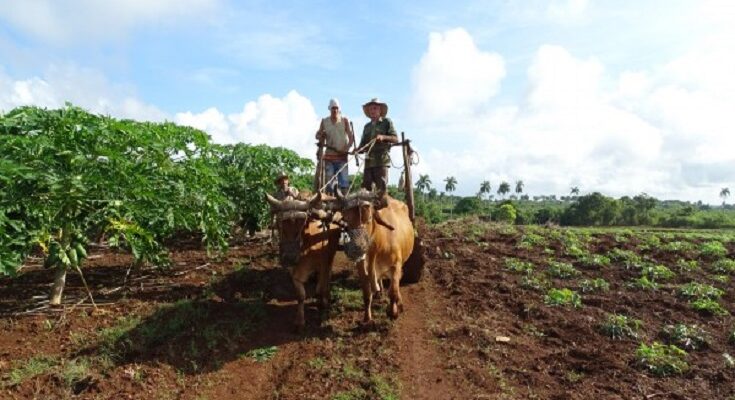At the end of June, the Agroecology Forum will be held in the southeastern municipality of Contramaestre. This event is led by the National Association of Small Farmers (ANAP) and its purpose is the application of science, technology and innovation in order to obtain healthy and wholesome food.
According to ANAP representatives who attend the agro-ecological movement in Contrama Estrela, all the preparations for this meeting, which is held annually and where thirty-eight productive structures are present, are already underway.
So far, according to preliminary data, fourteen works will be exhibited at the forum. These are mainly related to the environment and food production.
In this Santiago jurisdiction, twenty-five farms have been categorized as agroecological. This figure shows that farmers in this part of eastern Cuba are betting on this alternative to produce healthy food, ensuring yields that exceed those of traditional agriculture.
At the end of June, the Agroecology Forum will be held in the southeastern municipality of Contramaestre. This event is led by the National Association of Small Farmers (ANAP) and its purpose is the application of science, technology and innovation in order to obtain healthy and wholesome food.
The agroecological event is the closing of a stage of work of the agroecological movement in the territory. It is also a space for the exchange of experiences between producers, agricultural science academics and specialists in related subjects in order to obtain healthy food with high productive yields.
As part of its operation, the agroecological movement of Contramaestrense carries out visits to farms at different times of the year where the work and results of the different agroecological techniques can be observed. This is an incentive for other farmers to implement agroecological techniques in accordance with their social environment and the ecosystem.
Soil conservation, for example, is one of the topics to which the agroecology movement in recent times has paid special interest in Contramaestre, because sometimes farmers focus on increasing crop production without considering the subsequent consequences on the environment in which it is practiced.
Disregarding the negative results of this practice, it brings with it intensive soil tillage, monoculture, indiscriminate use of fertilizers, deterioration of vegetation cover, soil erosion, increased soil salinity, considerable reduction of groundwater, loss of agricultural biological and genetic diversity, and constant resistance to agricultural pests and diseases.
Faced with the eminent climate change and its effects emerges the concept of Agroecology, and the technology of ecological agriculture, which promotes agricultural production while conserving the elementary natural resources of food production such as soil, water and biodiversity.




